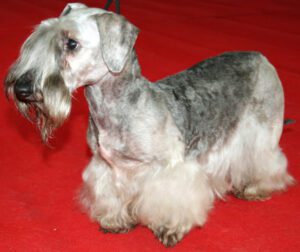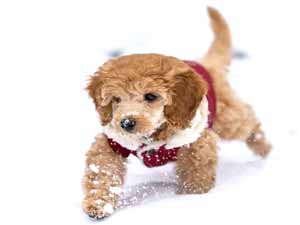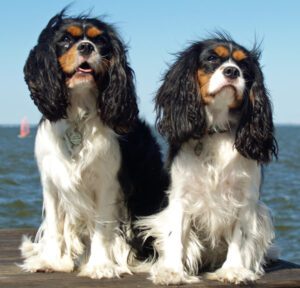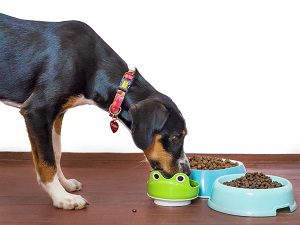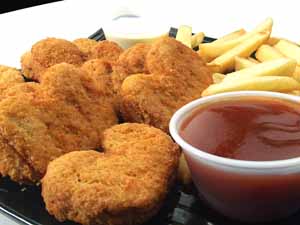The Corsican Dog is a breed of dog which is used for a variety of working purposes. It is an ancient breed and the dogs were employed most frequently as shepherds and guardians of the home and also made excellent hunting dogs.
As the name suggests, the Corsican dog breed originated from Corsica, France. It is also known by some other names such as Cursinu and Chien Corse.
The breed has existed on the Corsica island since the sixteenth century, but went into decline during the late twentieth century. However, the breed was saved and became recognized by the Société Centrale Canine.
Actually the Corsican dog breed has been known on Corsica island since the sixteenth century. The breed was used as a versatile hunting and farming dog on the island, until the 1950s.
The breed suffered due to competition from continental breeds, during the second half of the twentieth century. The L’association de Sauvegarde du Chien Corse was set up to safeguard the breed in 1989.
The Corsican dog breed has been recognized by the French kennel club ‘Société Centrale Canine’, since 2003. And it is placed in the spitz and primitive group breeds, as a primitive breed.[1]
Corsican Dog Characteristics
The Corsican dogs are medium in size with a slender build and powerful musculature that sports a striking short brindle coat.
Their coat can be fringed, with usual colors being brindle, fawn, black and tan or brown. The presence of a melanistic mask is permitted under the breed standard. White markings can be on the chest or the legs. The skin of the dog adheres closely to the body, and dewlaps do not appear in the breed.
They tend to have well-proportioned heads with broad, flat skulls and tapered muzzles that are somewhat thin. They have oval eyes which come in shades from chestnut to dark brown and their triangular ears are attached either right at the eye line or slightly above and they fold down near the sides of the head.
The Corsican dogs have long tail which hangs down at rest but frequently curls up over the back or rump when the dog is in action. Skin of these dogs is particularly tight to the body and there is little to no wrinkling or drooping.
Average body height of the mature dog is between 18 and 23 inches at the withers for males, and the females are slightly shorter. And average live body weight of the mature dogs is approximately 25 kg.

Temperament
The Corsican dog is docile, loyal and very attached to it’s owner. And it is wary of strangers. It is an intelligent, calm and stable dog breed capable of adapting itself to many situations. It is generally calm at home, and it explodes with energy and speed when in action.
The Corsican is a versatile dog breed, having been used as a sheepdog, as well as to herd cattle and in some instances for dog fighting. In case of hunting, it is most often used in hunting wild boar, but has also been used for fox and hare hunting.
The Corsican is still used as a herding dog, a watchdog and also for companionship. It can require further training than some other breeds, but can become a pleasant companion to it’s owner.
Lifespan
Average lifespan of the Corsican dog breed is between 9 and 12 years. But sometimes they can even live longer.
Feeding
How much a mature dog eats depends on it’s size, age, build, metabolism and activity level. Dogs are individuals, just like people, and they don’t all need the same amount of food.
The Corsican dogs are medium in size, but they are moderately active. So, their diet should be formulated for a medium sized breed with average exercise needs.
Generally around 2 cups of high quality dry food daily will be enough for a mature dog. You can consult with a vet in your area for better feeding recommendations.
Caring
Taking good care of the animals is very important for raising Corsican dogs. You should always keep up with your dog’s regular veterinary checkups to detect any health concerns early. Your vet will be able to help you to develop a caring routine that will keep your dog healthy.
The Corsican dog is quite capable of being a pleasant and well-behaved companion indoors but does require a great deal of exercise to maintain it’s calm and composed indoor demeanor.
They love short jogs and long walks, so they are well-suited to many alternative forms of exercise. They naturally excel at hunting and tracking trials as well as herding trials and are intelligent and agile enough to do well on agility courses and rally sport (although, their stubborn nature may make these endeavors a bit more challenging)
Generally, a mature Corsican dog should get around an hour to an hour and a half worth of vigorous activity per day.
Grooming maintenance of the Corsican dogs is fairly simple. They only require bathing a few times a year and more frequent bathing can strip the coat of it’s natural oils and lead to brittle fur and dry, flaky skin.
Check their ears for infections on a regular basis and keep them clean and dry. Teeth and nail care are important steps in the grooming routine as well. Weekly brushing of the teeth will aid in tooth and gum health. The nails should be trimmed monthly or as needed.
Health
The Corsican dogs are generally healthy. There are no known breed specific health issues. Although, you should keep good contact with a vet in your area.
| Breed Name | Corsican |
| Other Names | Also known by some other names such as Cursinu and Chien Corse |
| Breed Size | Medium |
| Height | Between 18 and 23 inches at the withers for males, and the females are slightly shorter |
| Weight | Approximately 25 kg |
| Good as Pets | Yes |
| Climate Tolerance | All climates |
| Color | All shades of tan and black with or without brindle, limited white patches |
| Lifespan | Between 9 and 12 years or more |
| Good for Children | Yes |
| Rarity | Common |
| Country/Place of Origin | France |

